
Volume I / Issue 10 / January 2017

From the Editorial Desk:

What's in a Name?
This month we have three articles by three different Clergy for you to read. One is on Epiphany. Then there is also an article on Baptism and then the Holy Name of Jesus.
Most the time I try to tie all three articles together in the editorial but I do not always succeed at it. But in today's article I think I can.
The Feast day of Epiphany was within two years after the circumcision of Christ. It is at the circumcision of John the baptist that we see that a name is given to a child. My understanding is that the circumcision is done on the eighth day of the boys birth and he is not given a name until then (see Luke 1:59)
The Second article, as I said, is a article on the Baptism of Jesus. Although this baptism was a baptism of repentance and not the sacramental baptism of the Church, it did remind me of one thing that happens when we are baptised into the Church.
When an Adult is baptized, the adult is asked at one point, "What is thy name?" Once the Adult answers, the priest then interrogates the named person with questions such as, "(name) dost thou believe in God the Father almighty, Creator of heaven and earth?" ....and so on. The named Adult than answers.
In infant baptism, when the question is asked, "What is thy name?", the sponsors of the child gives the answer for the child. Then the priest interrogates the named person with the same question as mentioned above. Except in the infant's case the sponsors answers for the child.
The point being for this article's sake is that the name of the person being baptized is asked for.
The third article is concerning the feast day of the Holy Name of Jesus.
In each article the underlining word that I thought of was the word "Name" Which got me to thinking on the importance of a name.
What's in a Name?
An easy question to start: does anyone know who Reginald Dwight, Jennifer Anastassakis Maurice Micklewhite is?
Reginald Dwight is [Elton John] Jennifer Anastassakis is [Jennifer Aniston] Maurice Micklewhite is [Michael Caine].
In celebrity life, a name change seems to be more the rule than the exception. People's names matter — your name is your identity, and you want that identity to be right. So up and coming celebrities will choose themselves names that suit their aspirations.
There were some other name changes outside of the celebrity lights, but in the case of these name changes they were names chosen and given by God.
A name change is significant
It's well known that people's names are often important in the Bible. So when Adam calls his wife Eve, it's significant and we should pay attention. When Rebekah gives birth to twins and names one of them Jacob, Deceiver, it's significant. Or when Isaiah names his son Maher-shalal-hashbaz, there is a good reason for it. And when Hosea's wayward wife bears a son and the Lord says to name him Lo-ammi, meaning "Not My People", a sad point is being made.
So we should be interested in people's names in the Bible. And we should be especially interested when people's names are changed, because it is always very significant.
For example, we find Abram and Sarai renamed Abraham and Sarah right after God renews his covenant with them, to make Abraham the father of a multitude of nations.
We find Jacob renamed Israel right after he had spent a night wrestling with God. He was no longer Jacob the deceiver, but Israel, the one who wrestles with God.
And when in Hosea, his son Lo-ammi, Not my People, is renamed by God, You are my People, it signals a turning point in the book, and in relationship with God.
It works the other way as well. The Babylonians understood very well the significance of names. So when they came and conquered Jerusalem and took its people into captivity they were careful to change their names as well, so as to completely cut off their former identities. We see this at the beginning of the book of Daniel. Daniel, meaning God is my Judge, is renamed Belteshazzar which honoured the pagan god Bel, instead of Israel's God. And the same went for his three friends: Hananiah was renamed Shadrach; Mishael, Meshach; and Azariah, Abednego.
So name changes in the Bible always mark very significant events, and often tell of big changes in relationships with God.
The change of a name is a very public statement of a change of relationship, a commitment to a new life. In the marriage life the old single life is put behind; the new name marks the start of a new joint life.
In the same way, when God changes people's names in the Bible, it marks the start of a new relationship, or a new phase in relationship with him.
A name change for Simon
And Andrew, the brother of Simon Peter, was one of the two who had heard of John, and followed him.
He findeth first his brother Simon, and saith to him: We have found the Messias, which is, being interpreted, the Christ.
And he brought him to Jesus. And Jesus looking upon him, said: Thou art Simon the son of Jona: thou shalt be called Cephas, which is interpreted Peter. John 1:40-42
Andrew, Simon's brother has just met Jesus, and the first thing he does is to find Simon and tell him "We have found the Messias". And he brought him to Jesus.
And the first thing Jesus does is to change Simon's name: "thou shalt be called Cephas, which is interpreted Peter"
Understand that Jesus and his disciples spoke Aramaic, but when the Gospels were written down, they were written in Greek. And of course, we read them in English. So John gives us both the Aramaic and Greek forms of the name. The Aramaic word "Kepha" and the Greek "Petros" (which we anglicised as "Peter") both mean "Rock".
Jesus is saying to Simon son of John: I am changing your name. From now on you will be called Rock.
But we must understand that this is more than simply a nickname. Jesus isn't saying to Peter, "Oh, I've got another disciple called Simon in mind. I'll tell you what, let's call you Peter so we don't all get confused." There was another disciple called Simon (Simon the Zealot} but that's not why Jesus renamed Simon son of John.
We can see that in the reading from Matthew chapter 16 where Jesus re-confirms the renaming of Peter: I tell you that you are Peter, and on this rock I will build my church.
Peter will be a rock not only by name, but by nature as well. He will be foundational in the church that Jesus is building.
When Jesus renames Simon it's not simply a nickname. Simon has met God face to face, and God did what God does: he changed his name. As Peter he now has a new relationship and a new purpose in his life.
What did Jesus see in him that prompted him to call him a rock?
If you read through the Gospels you will not see a man who we could consider a Rock.
He tries to walk on water-and fails! He begins to sink.....Well....like a rock!
At one point Jesus turns to the Rock and says "Go behind me, Satan, thou art a scandal unto me: because thou savourest not the things that are of God, but the things that are of men." see Matthew 16:21-23
Some translations uses the word stumbling block instead of the word scandal.
Peter has deeply misunderstood Jesus' plan to die, and tries to argue him out of it. So here Peter is not so much like a foundational rock, but a stumbling rock to Jesus.
Again, we find Peter denying Jesus just before his death. Three times he told a blatant lie, he called down curses on himself and he swore to them, "I don't know the man" He not only lies but he betrays his Lord: abandoning him at the last. He wasn't living up to his name was he?
We find Peter constantly falling asleep in the Garden of Gethsemane as Jesus prays his heart out. We find him babbling with fright at the transfiguration. We find him rebuked by Jesus for cutting off someone's ear with a sword. And so on and so on.
After a while you might begin to think that Jesus was being a bit ironic when he named Peter "Rock".
What did Jesus see in Peter? Knowing that all this was to come, what was it that prompted Jesus to declare Peter a rock?
Well, the passage in Matthew 16 is key. Despite all his human failings, Jesus could make Peter rock-like because he knew and trusted one thing. When Jesus asked his disciples "whom do you say that I am?", Simon Peter answered, "Thou art Christ, the Son of the living God."
And it is this statement that prompts Jesus' famous words, you are Peter you are Rock, and on this rock I will build my church.
Humanly speaking, Peter was far from being a Rock. But he did have one solid, unshakeable belief: that Jesus is the Christ, the Son of the living God. That was enough. With that Jesus knew that he could build on Peter a church that would shake the world.
So when Jesus first met Simon, he knew what was coming. He knew exactly what kind of man Simon was. Yet he named him Peter, the Rock, a name which has stuck for two thousand years.
It is very significant that Jesus did this when he first met Peter. Peter did not earn this name for himself, but Jesus first gave him the name, and then gave him the grace and the Holy Ghost power to live up to it. After Pentecost we see a different kind of Peter one who really was able to live out the name Rock.
And that's how God always deals with us. Jesus always takes the initiative. We never deserve what he gives us.
But it doesn't stop him from giving to whom He pleases. That's what grace is about: God's grace is favour, the free and undeserved help that God gives us to respond to his call to become children of God, adoptive sons, partakers of the divine nature and of eternal life. And that grace, that undeserved help, begins with a new name, a new start.
To him that overcometh, I will give the hidden manna, and will give him a white counter, and in the counter, a new name written. Apocalypse/ Revelation 2:17
St. Primaseus, Caesarius of Arles, and other early Fathers say the same thing. That the counter/stone represents our adoptions as sons through baptism. And that the new name is....Christian.
How do we get this new name that we need so much?
If we realize that our sin has separated us from God, and that we are dead in trespasses and sin, and that by putting our faith, our trust in the death burial and resurrection of Christ, we can be free from sin and death. And through confessing our sins and through the waters of sacramental baptism, we can receive that new name and a new start. No longer will you have the Devil as your Father. (John 8:44) But now you will be adopted sons of God with a new name. Christian!
Are we living up to our new name?


The Feast of the Epiphany
The Feast of Epiphany falls on January 6th each year. It is a feast that seems to be almost forgotten by so much of our society because Christmas is finished to most of society. Christmas was finished on December 25th and, in the eyes of much of society, it's time to move on. The "Much of society" started celebrating Christmas and preparing for Christmas around Thanksgiving. And as such they are tired of Christmas by the time December 25th arrives. On January 6th, The "Much of society" is too busy focusing on moving on with their lives and trying to figure out what to do with their New Year's Resolutions. This is why I say that to the too "Much of Society," the Feast of Epiphany is in many ways the "Forgotten Feast," . . . And this is a real shame for so many reasons. For you see, Epiphany is the feast day set aside by the Church to celebrate and remember the fact that Our Blessed Saviour came to reveal Himself as the Son of God to the Gentiles: in other words, you and me.
There are so many things that we could write about concerning this wonderful feast day but for our purposes right now, I would like to limit it to two points, if you will allow me: Firstly, the search by the three wise men for the Child Jesus. Secondly, the gifts that they brought along with them.
The Search for the Christ Child
"When Jesus therefore was born in Bethlehem of Juda, in the days of king Herod, behold, there came wise men from the east to Jerusalem. Saying, Where is he that is born king of the Jews? For we have seen his star in the east, and are come to adore him." (St. Matthew 2:1,2)
Those who were searching for the Christ Child, referenced in the Second Chapter of the Gospel of St. Matthew, have come to be known by many names: the wise men . . . . the three kings . . . . the magi . . . . and tradition has given them specific names: Melchior; Caspar (or Gaspar as some would call him); and Balthassar. No matter what name they go by, their purpose was still the same: to answer the question, "Where is He that is born King of the Jews?" In other words, their search was a vital one to them. Their search had great meaning or else they would not have undertook the journey to begin with. To them, their search had purpose.
Quite frankly, though, for each of us doesn't every "search" have a purpose? In other words, if you think about it, every single day we search for something, don't we? Now don't get me wrong, the search might be for something as simple as "where did I lay down my eyeglasses this time?" or "where is that phone number that I need?" But no matter what we search for, the item that we are searching for must have great meaning to us or else we would certainly not make the effort to search for it in the first place. Our Lord makes this very point when He tells the story of the woman looking for the lost coin, for example. And He says that she sweeps the house and looks diligently for the lost coin until she finds it. It is important to her. It is valuable to her. She has need of it and this is why she puts the effort and the time into searching for it. As stated above, we basically search for things that we need at the time . . . . we search for things that are valuable . . . we search for things that we have need of.
If you look back to the Old Testament, you will find: ". . . . that they may remember all the commandments of the Lord, and not follow their own thoughts and eyes going astray after divers things," (Numbers 15:39) So much of the world around us is seeking after "their own heart" and "their own eyes." In other words, they are seeking those things that are important in the eyes of the world. They are searching for those things that are considered valuable to the world in general. But the things in which the world searches for, these items only bring temporary happiness at best. Mechanical items or electronic items eventually wear out or break completely . . . . what is "hot" and "in fashion" today is suddenly "out of fashion" tomorrow. The hottest fads and trends are just that . . . . a fad . . . . a trend. And they are only popular until the next "fad" or "trend" comes along. And yet so much of the world spends its' time searching after worldly lusts that can only bring happiness, at best, temporarily.
The wise men chose to search after something much more permanent. This is the important lesson we can learn from them. They chose to spend their time in search of the "King of the Jews." " . . . In that day the root of Jesse, who standeth for an ensign of the people, him the Gentiles shall beseech," (Isaias/Isaiah 11:10) We need to follow the example of the three wise men in spending our time searching for God. So much of our time during this human life is spent chasing after worthless things. We seek after things which can not bring any lasting joy. "Seek ye therefore first the kingdom of God, and his justice, and all these things shall be added unto you." (St. Matthew 6:33)
Let us follow the good example of the three wise men. Let us focus our time on searching for the Christ Child instead of focusing our time looking for the things of the world that ultimately have no lasting value. Only a relationship with God has permanent, lasting value. Let us spend our time in this world wisely and concentrate on searching for God.
The Gifts We Bring
Whenever you look at a Nativity scene, you see the three wise men bearing gifts to the Christ Child. As it has come to be known, Melchior offered gold; Caspar offered frankincense; and Balthassar offered myrrh.
"And entering into the house, they found the child with Mary his mother, and falling down they adored him; and opening their treasures, they offered him gifts; gold, frankincense, and myrrh." (St. Matthew 2:11)
At that time it was customary to bring gifts to a king when visiting him. Certainly, this is a custom that seems to still be observed in our own time. If you ever watch the news, you will hear about visiting presidents and or dignitaries who visit our country and they present gifts to our president. Or you will see our president visiting other countries and bringing gifts to honor the king or president, as the case may be from that country. With this in mind, the gifts that the three Magi brought had specific meaning. The first gift, Gold, was brought to venerate Christ as Lord and King; the second gift, frankincense, was meant to emphasize the divinity of Christ; and the final gift, myrrh, was presented to express that Christ, the Son of Man, must ultimately die on the Cross. Each gift had meaning. Each gift had value. Each gift was presented with an express purpose in mind.
Similar to the three kings, we also can present "gifts" or "presents" to God. We can offer God various gifts: our obedience; our self-denial; alms given to the poor; etc. The one gift that we can give to God that He desires more than any other gift, though, is the gift of our heart. God desires that gift more than anything else. You see, as I say so often, God is a perfect gentleman. He never barges in unannounced. He never forces His way in. He never invites Himself. He waits until He is invited into our heart. Only we can issue that invitation. Only we can make room in our heart for Him. So often, our hearts are crammed full already of the loves and desires of this world. Only we can "clear things out" and "make room" where God can dwell. The greatest gift of value that we can give to God is the gift of our love.

The Funny Pharmacy
Proverbs 17:22
A joyful mind maketh age flourishing: a sorrowful spirit drieth up the bones.


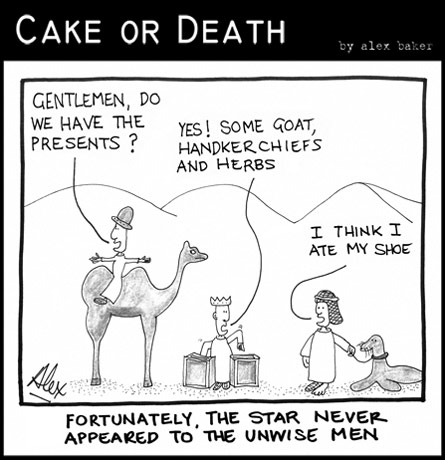
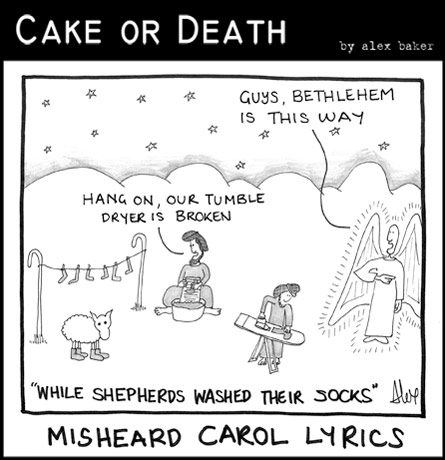
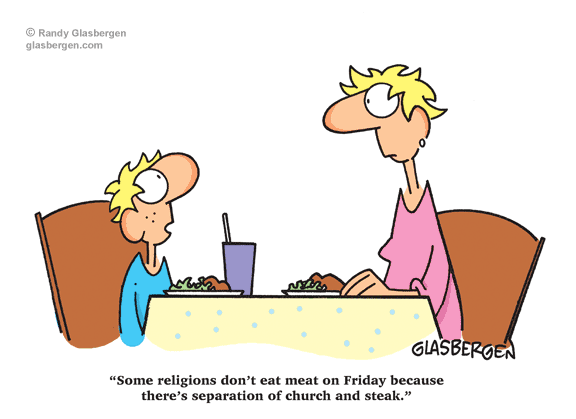


Questions and Answers
What were the reasons given for not attending the conclave? Or were you simply ignored.
Most simply ignored. A few wrote against the election. We know Bishop Louis Vezelis of the Thuc Carmona, Musey line wrote against the election, but do not know what he said.
N Martin Gwynne and John Daly wrote Briton's Catholic Library Letter number 7 against the pre-election book and sent copies to us. It had no substantial objections. As I recall, they wanted us to wait for Enoch and Elias to come and appoint a Pope. John Daly and Martin Gwynne have since separated. Their objections came in after the election, although they had been aware of it for months before.
A few objected that it was not the appropriate time, but gave no appropriate time. With a vacancy over ten times longer than the longest previously, we considered this could be dismissed. The second Canon of the Ecumenical Council of Loyons states in part: “Where a greater danger exists, there without doubt a fuller deliberation is necessary. How grave are the losses resulting from a prolonged vacancy, and how full of dangers it is to the Roman Church, is shown by prudent consideration of the past. Hence, a manifest reason urges us that, while we are engaged in the reformation of minor matters, we do not leave without remedy for suitable reform those things that are more dangerous.”
Kenneth Mock came with Father Patrick Henry CMRI. Mock said we should wait until a priest could be found with faculties to absolve us from any possible excommunication we had incurred for participation in the Traditionalist movement. We had publicly renounced any and all errors of this movement. When pressed, he could not find such a priest, and indeed no such priest existed. The penalties for participation in the Traditionalist Movement are reserved to the Pope, but the papacy was vacant. Canon Law also allows the Local Ordinary, that is the Bishop of our own Diocese, to absolve. However, all of these Sees were vacant. After that conversation, Mock and Henry left, saying they would pray on it. Mock left a message on the answering machine the next morning that they would not be participating.
Thomas Hemple and two of his sons, Matthew and Albert arrived late to the place of election. They had been notified well in advance and again closer to the time of the election. One would presume that people coming to such an important affair would indicate they are coming and arrive the day before as Mock and Henry did. Thomas Hemple had been working with Dr. Benjamin Franklin Dryden for years on a papal election. Attempt was made to contact Dr. Dryden, but he died before the election best we could find out.
Father (later Bishop) Jose Lopez-Gaston expressed interest in coming to the election. However, at the last minute he sent a letter indicating he would not come, but giving no reason. He had been ordained by Bishop Carmona.

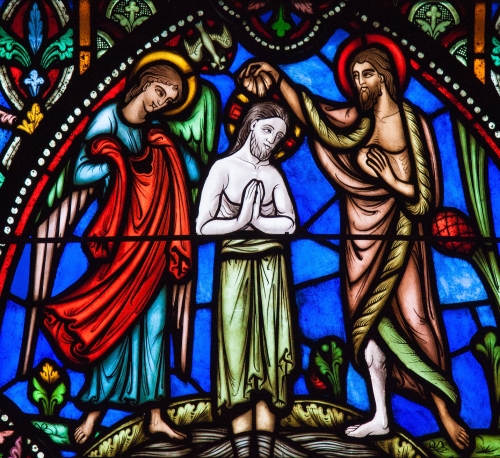
The Baptism of the Lord
Why did Jesus go to receive the Baptism of Penance administered by John the Baptist? Obviously Jesus had no need to do penance, because He was sinless. So why did he do it? To come to an answer let us begin with the mission of John the Baptist:
And in those days cometh John the Baptist preaching in the desert of Judea. And saying: Do penance: for the kingdom of heaven is at hand. For this is he that was spoken of by Isaias the prophet, saying: A voice of one crying in the desert, Prepare ye the way of the Lord, make straight his paths. (Matthew 3:1-3)
And he came into all the country about the Jordan, preaching the baptism of penance for the remission of sins; As it was written in the book of the sayings of Isaias the prophet: A voice of one crying in the wilderness: Prepare ye the way of the Lord, make straight his paths. (Luke 3:3-4)
John the Baptist was here to get people to prepare the way for Jesus and the kingdom of heaven to come. “Make straight his path, do not let anything get in the way of his coming.”
Nine months before John was born, the angel Gabriel appeared to John’s father, Zacharias, and said he would have a son. The angel says this son “And he shall convert many of the children of Israel to the Lord their God. And he shall go before him in the spirit and power of Elias; that he may turn the hearts of the fathers unto the children, and the incredulous (skeptical) to the wisdom of the just, to prepare unto the Lord a perfect people.” (Luke 1:16-17).
Reading that, when I close my eyes and picture a John that turns hearts an inspires wisdom to prepare the way for Jesus, I envision a man standing on a golf course, swinging his club and yelling, “Fore!” Jerking people out of their everyday lives and grabbing their attention, causing them to look up and be alert for the dropping ball.
John's mission was to cry out to the people to prepare the people for the coming Messiah and His Kingdom. They needed to look in there hearts clear the way, level a path for the Messiah and the Kingdom of heaven to come into their lives. In other wards they needed to do penance. That is they needed to repent of anything that would get in the way. And not only repent. But show fruit worthy of penance. Once John saw the fruit of penance he would baptize them in a ceremonial washing to show that they have prepared for the coming of the Messiah and the Kingdom of Heaven.
Understand something. John's baptism was not the same baptism as the sacramental baptism of the Church.
For the sake of time let me show the quick differences:
1. One of the earliest forms of religious ablutions was the baptism of the priests at their consecration, Exodus 29:1—9; 40:12.
-
Any defilement of the body contracted by the priests after their installation, in the daily performance of their duties, especially by contact of their hands and feet with unclean things, had to be removed by washing these members when they entered the sanctuary, Exodus 30:17—21; 40:30—32.
-
If an Israelite had touched the carcass of an animal or carried any part thereof, he was considered unclean and had to wash his clothes and his body. Leviticus 11:24—28
-
There was a baptism of those who had recovered from leprosy, Leviticus 13:6,34.
-
On the great day of atonement the high priest performed very careful ceremonial washings, both at the beginning and at the conclusion of his religious services, Leviticus 16:4. Also chapter 24.
-
The man who had led the scapegoat into the wilderness and likewise he who had carried forth without the camp the bullock and the goat for a sin-offering, were required to bathe their flesh in water. Leviticus 16:26—28.
-
When Levites were consecrated, they were sprinkled with water. Numbers 8:5—7. also Chapter 21.
-
The priest and the two laymen that had prepared the ashes of the red heifer had to bathe their flesh in water. Numbers 19:7—10. There were also other ceremonial washings or baptisms, with which the Jews were familiar.
-
But the most interesting of the Jewish religious washings was the baptism of proselytes, who, after being instructed in certain parts of the Law, and having made fresh profession of their faith, were then immersed in water, after which they were considered full-fledged Israelite in all things. It is this ceremony to which the baptism of John, in its outward form was related.
Another interesting question is that concerning the difference, if any, between the baptism of John and the baptism instituted by Christ. It must be noted, on the one hand, that there are many points that they had in common:
-
John baptized by divine command, Luke 3:2-3; John 1:33; Matthew 21:25; Luke 7:30.
-
His was a baptism in and with water. Matthew 3:11; Mark 1:8; Luke 3:16; John 1:26; 3:23.
-
It was, finally, a baptism of repentance, for the forgiveness of sins, Mark 1:4; Luke 3:3.
In all these features it agreed with the Baptism of Christ.
Nevertheless, there was a difference between the baptism of John and that of Christ.
When Paul came to Ephesus and found certain disciples that had merely been baptized unto John's baptism, he baptized them in the name of the Lord Jesus, Acts 19:1—16. The chief points of difference between the two baptisms are indicated in this passage. John's baptism is consistently called a "baptism, of repentance." It was administered to adults only, to such as confessed their sins, as had reached the age of accountability Matthew 3: 6; Mark 1:5, whereas the Baptism of Christ is for all people, including the children, Acts 2:39- 41; Colossians. 2-11.
So back to our original question: Why did Jesus go to receive the Baptism of Penance administered by John the Baptist?
One of the reason Jesus received the Baptism of Penance was in order to show that He was doing penance for us and giving us an example to do penance not only for ourselves, but others as well.
And let us consider what happened:
But John stayed him, saying: I ought to be baptized by thee, and comest thou to me? And Jesus answering, said to him: Suffer it to be so now. For so it becometh us to fulfill all justice. Then he suffered him. (Matthew 3:14-15)
John being mere man asked Jesus to baptize him. However, when Jesus expressed God's will to John, John immediately followed the will of God and baptized Jesus.
And Jesus being baptized, forthwith came out of the water: and lo, the heavens were opened to him: and he saw the Spirit of God descending as a dove, and coming upon him. And behold a voice from heaven, saying: This is my beloved Son, in whom I am well pleased. (Matthew 3:16-27)
Matthew 3:16-27 comes to mind in a later chapter that tells us of the Transfiguration:
And as he was yet speaking, behold a bright cloud overshadowed them. And lo, a voice out of the cloud, saying: This is my beloved Son, in whom I am well pleased: hear ye him. (Matthew 17:5)
Here at the Transfiguration, God the Father says the exact same words that he used at Jesus baptism. Except for one small phrase. “hear ye him” Why did the Father not use that phrase when Jesus was baptized? I would like to propose that one reason is possibly because Jesus' baptism was only part of the preparation for His ministry.
Immediately after the baptism, the Holy Ghost drove Jesus into the desert for forty days and forty nights of prayer and preparation for ministry. (Mark 1:12) Wasn't Jesus ready for ministry? Jesus came to give us an example of how God also wants to prepare us for His will in our life. Remember Jesus preached as much by His example as He did by His words. Just as in Johns baptism, our Sacramental baptism our Christian baptism, is only the beginning.
So in conclusion. How can we relate to Jesus' Baptism?
-
Repent (do penance)
-
Bring forth fruits worthy of repentance
-
Receive sacramental baptism which is how we receive the Holy Ghost with in us and how we are brought into the Church.
-
Allow the Holy Ghost to drive you into the desert to teach you through struggles, fasting, prayer, and spiritual battles. So that he can prepare you for what ever his will is for your life.

The Pope Speaks
Christmas Begins

“But Mary kept all these words, pondering them in her heart.” (Luke 2:19)
We also are pondering these things in our heart. Let us bring Jesus our hearts, during this Christmas season and indeed for the rest of our lives.
The Christmas season begins officially at first Vespers of Christmas in the evening of December 24th. We observe the Octave of Christmas from then until the Feast of the Circumcision on January 1st. The Twelve Days of Christmas run from Christmas day itself to the Epiphany. And finally we observe forty days of Christmas from Christmas until the Purification on February 2nd. Let our feasting, during this Christmas time be moderate, but let it be there. Let us thank God the Father for the great gift He sent us on the first Christmas so many years ago.
“For God so loved the world, as to give his only begotten Son; that whosoever believeth in him, may not perish, but may have life everlasting. For God sent not his Son into the world, to judge the world, but that the world may be saved by him.” (John 3:16-17)
Let Christmas time also be a time of prayer. Let us join our prayers together so that some day there shall one flock and one shepherd as Jesus Christ truly desires. Let us remember that prayer is the life blood of the Mystical Body of Christ, the holy Catholic Church, which He founded for our salvation.
May God bless all of you now and always.
+Michael pp

New Videos from our YouTube Channels
Living Catholic
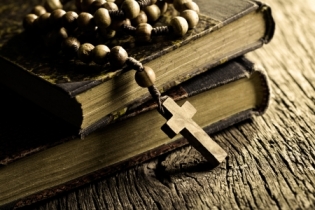
The Benefit of Insight In Reading Scriptures and Lives of the Saints
No matter who we are, we all will go through conflicts and afflictions. Its a matter of when not if. What happens to many is that they wait until they are going through the conflict and afflictions to figure out how to deal with it. Its almost like taking a test on the History of the Church but not reading or studying the History! So below is a few thoughts, ideals and tools that can be helpful in preparing for the conflict and affliction that will come into your life. And they will come.
Everyone one who died a Saint became a Saint through afflictions.
This is why God allows affliction in our lives. Some of us go through more afflictions then others. When you feel that your burden is harder to bare then others don't think the worse. Be positive! Two things to consider.
One, God does not give you more than you can handle.
(I Corinthians 10:13) “God is faithful, who will not suffer you to be tempted above that which you are able: but will make also with temptation issue, that you may be able to bear it.” If you think it is to much to bare, then in essence you saying God does not know what he is talking about!
Two, God uses afflictions to help you learn his statutes, that is his laws or principles that help you to be a better person.
David, when writing the Psalms says, “It is good for me that thou hast humbled (afflicted) me, that I may learn thy justifications (statutes, law or principles).” (Psalms 118:71)
Reading the Psalms
I pray the divine office every day and most times I pray all the hours. At each of the hours are several Psalms. Almost every time that I read them, if I am truly meditating on them and not just going through the routine, I find something that speaks to me. I put myself in the shoes of the one who wrote the Psalms. My suggestion is to read through the Psalms and underline every verse which has meaning to you. Then begin memorizing and meditating on these verses. I even at times put a date next to the verses that spoke to me about a situation in my life at the time. That way when and if I came back to those verses later, I can remember how God worked in my heart during that time.
Reading the Proverbs
The Book of Proverbs is one of the Wisdom Books, along with Job, Psalms, Ecclesiastes, and the Canticle of Canticles, the book of Wisdom, Ecclesiaticus and Sirach.
The primary purpose of the book of proverbs is to teach wisdom, not only to the young and inexperienced but also to the learned.
(Proverbs 1:1-7) The proverbs of Solomon son of David, king of Israel: for attaining wisdom and discipline; for understanding words of insight; for acquiring a disciplined and prudent life, doing what is right and just and fair; for giving prudence to the simple, knowledge and discretion to the young -let the wise listen and add to their learning, and let the discerning get guidance -for understanding proverbs and parables, the sayings and riddles of the wise. and then in verse 7 we read, “The fear of the Lord is the beginning of wisdom. Fools despise wisdom and instruction.”
There are 31 chapters in the book of Proverbs.
I recommend reading each day the chapter that corresponds to the day of the month, and ask God to reveal new principles that we can apply to our particular problem.
Reading the biographies of Saints
Last but not least, read biographies of great saints in the Church. Visualize their circumstances in the light of what we are now experiencing. “Let no temptation take hold on you, but such as is human.” ( I Corinthians 10:13) All people go through temptations. Even the Saints. “We also having so great a cloud of witnesses over our head, laying aside every weight and sin which surrounds us, let us run by patience to the fight proposed to us:” (Hebrews 12:1) We have all those in heaven encouraging us! They know what we have been through. They want to intercede for us. They are crying out Run! Run! Run, toward the fight! They are there for us to intercede, The scriptures are there for our encouragement, And the Church is there with all the graces needed to not only enter the fight but to win it!

Catechism Catch Up!
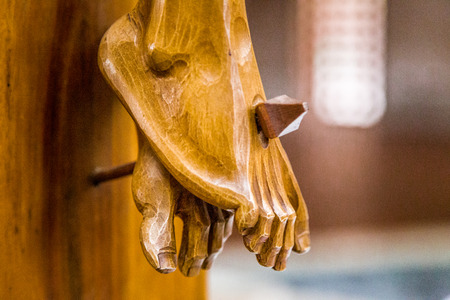
Our Redemption and What it Means
1 Peter 1:18-21
Knowing that you were not redeemed with corruptible things as gold or silver, from your vain conversation of the tradition of your fathers: But with the precious blood of Christ, as of a lamb unspotted and undefiled, Foreknown indeed before the foundation of the world, but manifested in the last times for you, Who through him are faithful in God, who raised him up from the dead, and hath given him glory, that your faith and hope might be in God.
The word that I want to focus on here is the word "redeemed." That is part of the heart and soul of Catholicism, redemption. The Churches message is a message of redemption. When we present the gospel, we should present it with redemption being the center of our presentation. It's one of the great words, it's one of the great titles of Christ, Christ our Redeemer. The question is whether or not we really understand the fullness of the word redemption.
In the past, even today, We cry out against the immorality in our government and in our culture. We are concerned with the culture of death as we see babies brutally murdered. We stand for hours with our posters waving in the air against such slaughter.
We are appalled by the destruction of the family. Starting with divorce all the way down to the homosexual life styles, sexual neutrality, and marriage going beyond the man and woman.
We think if we speak out against these thing in our country and pass legislation against these immoral things that we can convert our country back to when there was a Godly morality.
But our responsibility is not to moralize the unconverted, it's to convert the immoral.
Our responsibility is redemptive, not political. We do not have a moral agenda. We have a redemptive agenda. And none of us should be surprised that we couldn't...we couldn't reform the kingdom of darkness ruled by Satan himself. Our message is not morality, it has never been morality, our message is redemption. That has always been and always will be the pure and true message of the Church. And I hope that people who have literally spent their time and millions upon millions of dollars trying to moralize the unconverted will now turn their attention to trying to convert the immoral. And at the heart of this matter is the understanding of redemption. It's a great word. It's a word not often used and not fully understood.
I remember when I was a little boy I read a book, a little book that left a deep impression upon my mind. It was about a little boy who made a little boat. He got some pieces of wood and he kind of carved them out and glued them together and made a little boat and put a little mast on it and made a little sail and attached it to the boat and worked very hard with his little tools and produced what to him was a very special little sailboat, and painted it up the way he wanted it. Went down to the lake nearby to sail it. It was carried along, however, by a strong breeze and eventually got beyond his reach and then it went out of sight. He was sad about losing this little prize of his own craftsmanship. And later walking through the little town he lived in he noticed it was for sale in the window of a shop. He went in and told the shopkeeper that it was his and he tried to lay claim to it. The shopkeeper did not believe him, however, and the man behind the counter demanded that if he wanted it he'd have to pay for it. He'd have to buy the very boat that he had made with his own hands. He went home, broke open his little piggy bank and found that he had just enough money. So he returned to the shop, put the money on the counter and bought back his little boat. It was surely his then, twice his, he said, because he not only made it but he redeemed it.
Made by the Creator and then redeemed by the Creator. That's really the story of Catholicism, isn't it? And that's St. Peter's theme in the passage and it's the theme of our faith. Our message is redemption. One of my favorite words in scripture is "redeemed." It may not be often used among Catholics, but it should be. We should refer to Jesus Christ much more frequently as our Redeemer, thus exalting this wonderful aspect of His saving work.
It has been said, "Great was the work of creation, but greater the work of redemption.
It cost more to redeem us than to make us. In the one there was but the speaking of a word. In the other there was shedding blood. The creation was but the work of God's fingers. Redemption is the work of His arm,".
It's true. Redemption is the greater work. The Lord Jesus, pointed us to this work of his when he says "For the Son of man also is not come to be ministered unto, but to minister, and to give his life a redemption for many." (Mark 10:45). Redemption is more specific than salvation. It speaks of the heart and soul of salvation. It focuses on the fact by which salvation is achieved. Redemption has to do with the purchase by payment of a price. Redemption then focuses on how God bought us from our bondage to sin...how God paid the price. It views man's condition as a prisoner, a prisoner to sin and iniquity and sees God coming to set the prisoner free by paying the full required price.
Sin calls for justice. Justice demands a price. The price justice demands is death. Redemption then of the sinner must come through death.
The imagery shadowing Saint Peter's words here comes from Exodus chapter 12. This scripture passage is so basic to our understanding of redemption.
"And the Lord said to Moses and Aaron in the land of Egypt: This month shall be to you the beginning of months: it shall be the first in the months of the year. Speak ye to the whole assembly of the children of Israel, and say to them: On the tenth day of this month let every man take a lamb by their families and houses. But if the number be less than may suffice to eat the lamb, he shall take unto him his neighbor that joineth to his house, according to the number of souls which may be enough to eat the lamb."
In other words, have a lamb that is consumed by two families if families are too small to consume one full lamb. "And it shall be a lamb without blemish, a male, of one year: according to which rite also you shall take a kid. And you shall keep it until the fourteenth day of this month: and the whole multitude of the children of Israel shall sacrifice it in the evening. And they shall take of the blood thereof, and put it upon both the side posts, and on the upper door posts of the houses, wherein they shall eat it. And they shall eat the flesh that night roasted at the fire, and unleavened bread with wild lettuce. You shall not eat thereof any thing raw, nor boiled in water, but only roasted at the fire: you shall eat the head with the feet and entrails thereof. Neither shall there remain any thing of it until morning. If there be any thing left, you shall burn it with fire.
And thus you shall eat it: you shall gird your reins, and you shall have shoes on your feet, holding staves in your hands, and you shall eat in haste: for it is the Phase (that is the Passage) of the Lord. And I will pass through the land of Egypt that night, and will kill every firstborn in the land of Egypt both man and beast: and against all the gods of Egypt I will execute judgments: I am the Lord. And the blood shall be unto you for a sign in the houses where you shall be: and I shall see the blood, and shall pass over you: and the plague shall not be upon you to destroy you, when I shall strike the land of Egypt. And this day shall be for a memorial to you: and you shall keep it a feast to the Lord in your generations with an everlasting observance.”
Now that describes God initiating the Passover. Let me give you a little bit of background around that passage. One of the patriarchs of Israel, Joseph, mentioned, of course, in Genesis, had been sold into slavery in Egypt by his brothers. He then became Prime Minister of Egypt alongside the Pharaoh. During a severe famine in Israel, the family of Jacob, Joseph's father, came to Egypt to survive. There was food in Egypt but not in Israel. When they came into Egypt, these Hebrew people began to dwell there. They were keepers of livestock so Pharaoh gave them their own section of land, it was called the land of Goshen. They lived there and raised their crops and their herds there and they began to multiply. In fact Exodus 1:7 says the children of Israel were fruitful, increased abundantly, multiplied, waxed exceeding mighty and the land was filled with them. They literally had explosive growth. They reached the proportion of several million people, Hebrew people living in the land of Egypt. Their status, however, began to deteriorate as they began to grow. They were seen as a threat. And so eventually, of course, they became slaves.
Pharaoh became jealous of these Jews in his land. Fearing them because they had become so powerful and were so blessed by their God. So he decided to turn them into slaves, forced them into making bricks for his great buildings that he was building. However, this slavery made them stronger and their numbers continued to increase. Eventually it was God's time to call them out of Egypt to take them to the Holy Land and establish them as a nation. After 400 years of Egyptian exile God began to move. The Pharaoh who was cruel and who hated the Hebrews and yet was greedy for their slave labor wouldn't release them. You remember Moses said, "Let my people go," and Pharaoh refused to do that, so God unleashed on Egypt plague after plague, a series of ten plagues culminating in the final plague which was the supernatural execution of the firstborn animal and the firstborn in every family. This is a cataclysmic judgment. The firstborn in the family was the heir to everything the family possessed, the favored child. The tragic judgment resulted in Egypt letting the Israelites go and several million people exited Egypt, you remember, the story of them crossing the Red Sea and Pharaoh then changing his mind, chasing them and having his entire army drowned. But the death angel was going to move through Egypt and slay the firstborn child in every house...an unthinkable judgment on this vast race of people. In order for the Hebrews to be spared this divine death of the first born, this death angel, God instructed them to kill a lamb or a kid, it could be a goat, of the first year without a blemish, without a spot, offered as a sacrifice to the Lord and splatter its blood around the door at the top and on the sides, so the death angel could see the blood and know that they had obeyed God and offered a sacrifice and spare the firstborn.
Now follow the thought. The lamb's life was given in place of the life of the firstborn.
The lamb died as a substitute. It is a substitutionary death, that paid the price God required and redeemed the firstborn from death. It would be hard to imagine the busyness of that time, the busyness of the preparations, the activities of the families as two weeks ahead of time they get this lamb, they bring it into the house, they live with that lamb, they begin to understand what's going to happen. This lamb that they come to know as a household pet is going to be the substitute that's going to die in place of the firstborn. the firstborn is then going to be ransomed by the bloody death of the lamb. These front doors were literally a wash in blood on that night, giving some kind of a picture even of the cross on which the future, final Lamb would be slain. It was the blood then that redeemed the family from divine judgment.
It was the death of a lamb that paid the price to satisfy God and the angel passed by.
As evening came those people gathered around the table, they had their sandals on, they had their loins girded which means they were ready to move. They had the belt cinching their garments together, they weren't in a relaxed position. They had their staffs in their hands ready to walk and hike. They were ready to move. They ate quickly, hastily in order to leave that night because that's exactly what was going to happen. As soon as all these people started dying all over Egypt as this divine death angel started executing them, the Egyptians it says in Exodus 12 were urgent among the people that they might send them out of the land in a hurry for they said we'll all be dead. And so they had to move immediately that night.
God thereby had decreed that this passover would be celebrated every year since that time, and it has, as a memorial to remind Israel that they were delivered from judgment through a lamb who died in their place and paid the price to ransom them...a redeeming, ransoming substitute. That then, of course, becomes the dominant theme of the Old Testament sacrificial system. And throughout the years of the Old Testament, even into the life of Christ in the New Testament, millions and millions and millions of lambs were slain in this blood-letting sacrifice which pictured substitutionary death which was a price paid to ransom sinners. That's what was behind Peter's words. Now look at what Peter says in 1 Peter chapter 1, "Knowing that you were not redeemed with corruptible things as gold or silver, from your vain conversation of the tradition of your fathers: But with the precious blood of Christ, as of a lamb unspotted and undefiled, Foreknown indeed before the foundation of the world, but manifested in the last times for you, " All of that imagery finds its way to the cross and we are redeemed by the Lamb of God who takes away the sin of the world. The ransom price required by God was death...the ransom price required by God was death. And the Lamb died to pay the ransom price, it was the Lamb's death for our life. He died that the death angel might pass us by. The word "redeemed" by the way, just as a note there in I Peter 1:18, alutroo or lutroo, this form of it, alutrothete means to be set free by a ransom paid. The noun form means a ransom. It's a technical term for a price paid to buy back somebody headed for judgment, to buy back particularly a prisoner of war or to buy a slave's freedom. To understand the Christian faith then is to understand redemption, ransom, substitutionary death, that's what we must understand.
Four questions Peter answers here, just briefly:
Question number one:
what were we redeemed from? In the case of the Passover which I read out of Exodus, they were redeemed from divine judgment, from death, from execution at the hands of the death angel. What were we redeemed from? We were redeemed from sin.
When talking to some one about there need for Christ, the first thing that's necessary is to discuss sin.
We have to understand the human predicament. We are sinful and we are headed for death, physical and eternal. Look at Genesis chapter 6. God looked at the wickedness of man and saw that every imagination of the thoughts of his heart was only evil continually. Our motives are corrupt, our desires are corrupt. From the depths of our heart the imaginations of our mind are wicked. St. James talks in 1:15 about concupiscence (lust) conceiving and bringing forth sin. We are fundamentally wicked. We have deeper than our thoughts, down deeper than our conscious thoughts, we have these hankerings, these cravings, these longings for what is wrong and what is evil. We are a flesh-controlled person. Down deep in us there are cravings to lie, cravings to fulfill our sinful passions. These distortions deep in us lead to sins of all kinds being conceived in our minds. Again I say our concupiscence in some ways are deeper than our thinking. They rise into our minds and they are expanded into imaginations and fantasies that then give birth to sin which produces death. We are morally corrupt deep down, that's why trying to moralize unconverted people is futile. All you can do at best would be turn them in to hypocrites.
Secondly, our sinfulness is defined for us in I Peter 1:14 not only as concupiscence which were yours, but he adds, "In your ignorance."
Not only are we sinful morally, we're sinfully intellectually. That is to say we are ignorant of of God's law.
We are ignorant of God's law, ignorant of God's standards. We cannot know God. That is to say we cannot get to know God. We can know there is a God but to get to know him and truly understand what he desires, we are ignorant of these things. The natural man doesn't know the things of God, they are foolishness to him. St. John 17:25 Jesus said, "the world hath not known thee;" we don't know God, we don't understand His truth. We don't therefore have enough information to live as we ought to live. We are characterized in Romans 1:28 as having a reprobate sense, as being driven by the concupiscence of the flesh, the concupiscence of the eyes, of the pride of life coming out of those evil hankerings and having no restraining knowledge of God in our minds. We are ignorant, we have no complete knowledge of God. So we are sinful morally and we are sinful intellectually.
Thirdly, he talks about how sin effects us socially.
I Peter 1:18 he says, "you were not redeemed with corruptible things as gold or silver, from your vain conversation of the tradition of your fathers:" The word vain means empty, better yet, valueless. We would like to think, that we're making great contribution to humanity, that we're making a great contribution to the world and great contribution to people around us and we have some social benefits to lay on the world we influence. The truth of the matter is we are meaningless, we are powerless, we are pointless, we are valueless. All is, as the writer of Ecclesiastes says, "Vanity, vanity, vanity, nothingness, nothingness, nothingness." Socially we make no difference over the long haul. Our life is empty as far as having any value to anyone else, any real spiritual, permanent, eternal value. So, we in definition from this text are sinful morally, intellectually and socially. We could add one more, religiously. We are lost even though we're religious. Verse 18 says that we were not redeemed with perishable things from our futile way of life, then this, "traditions of your fathers." What that simply means is it's just referring to what tradition was passed down to us. In the case of St. Peter he was from a Jewish environment, he would be looking at apostate Judaism and he would say, "Your religion was corrupt because you were an apostate Jew." If he was talking to Gentiles he would say, "Your religion was corrupt, your religion of paganism, you were involved in pagan religion and that was in evidence of your degenerate sinfulness." Morally, intellectually, socially, religiously, every way you look at it, we're sinful without the working of Christ in our lives. Our morality is not what is acceptable to God. Our minds aren't acceptable to Him. We can't attain to Him. Our social impact is zero and our religion is a damning religion. This is the state of our sin. It is pervasive. We are fettered. And when you ask people today, how do people usually define it? Gambling, drinking, committing acts of sexual sin. It's far more than that, that's sort of superficial. when you look at the Scripture's definition of sin it makes plain that we are in a prison cell and the prison cell is primarily that of alienation from God. And there's no jail break for us by our own hands. We are separated from God with the coils of a twisted self. Our self is tortured into ugly shapes of conceit and fear, resentment, rebellion. It's a slavery too terrible, too tyrannical for us to ever extract ourselves.
And so we are in desperate condition. The punishment for this is damnation.
The condition of unredeemed man is so pervasive it totally engulfs him and there's absolutely nothing he can do about it and God has promised to judge him for it. He is degraded. He is defiled. Once a companion in the Garden of God he is fit only now to have fellowship with devils and demons. His flesh is filthy. His body is stained and need of cleansing. Its members and faculties are given to unclean thoughts and words and actions. There's no part of him that is fit for union with God. The Scripture says his tongue is deceitful, his lips are poisonous, his throat is like an open tomb, his eyes are full of adultery and pride, his ears are deaf to God's voice and truth, his hands do evil and his feet are swift to shed blood. His mind is depraved and reprobate. His heart is desperately wicked. His will is unrepentant and hard. He resists God. He refuses life. His conscience is evil. That's pretty comprehensive stuff. It's not one faculty that sin has defiled, but like a strong poison it soaks in and eats through everything we are and man therefore is left in this utter darkness, darkened mind, groping, unable to comprehend the light, walking in all kinds of wickedness, doesn't know where he's going, stumbles, doesn't know why he stumbles or how to get up. And you can see the desperation. It is from that that he needs to be redeemed. That's what we were redeemed from.
Third question...what were we redeemed with?
Again I Peter 1:18, not with silver and gold, not with any perishable commodity, not with any decaying commodity, this isn't some ransom price that could be used in an earthly environment such as you would read about back in the thirtieth chapter of Exodus. This isn't some earthly ransom. There is no coinage. There is no human wealth. There is no earthly commodity that can pay the price. So, verse 18 says, "We were redeemed with precious blood," that means death, the death of someone precious, the death of a precious Lamb, an unblemished spotless Lamb. Blood is a vivid way to describe death, the sacrificial death was the price paid. Now that should not surprise us because we know if we know the Old Testament that that's the way God designed it. That there needed to be a sacrificial substitute to pay the price of redemption, to pay the ransom to God. It takes the death of a spotless Lamb without blemish who is precious. And who is it? I Peter1:19 says it's Christ. That's why John the Baptist looked at Jesus when He came down to the Jordan River and said, "Behold the Lamb of God who takes away the sin of the world."
And that answers the fourth question...who were we redeemed by?
The answer is Christ. We were redeemed with blood, the death of a sacrificial Lamb. Who was it? It was Christ. He's the perfect, spotless, unblemished sacrifice for sin. He's the one more precious than any who ever lives, more valuable than any other who ever walked on this earth. It was His precious life that was given for us. He died on the cross to pay our ransom price, to satisfy the justice of God, the person of Jesus Christ.
Peter not wanting to just leave it at that shows why Christ was so precious, or how He was so precious. Verse 20 says, He was "Foreknown indeed before the foundation of the world"
That word “foreknown” in the latin is the word “praecogniti” which translated into English can be the word “diagnosed” That is to say God Foreknew that Adam and Eve would give into Satan's temptation and would fall even from before the foundation of the world. He then “diagnosed” the problem which was sin entering into the world. He saw what it would do Man and Creation. So he prepared a remedy, even before the foundation of the world. That remedy was Jesus Christ the Lamb of God, the Redemption Price for us and his creation.
He came into the world as a Lamb, foreknown, incarnated (in flesh) as a Ransom as a Redeemer.
St. Peter emphasizes in 1:21 that He was raised from the dead. This was a divine affirmation that His sacrifice was complete and perfect. And then it says God not only raised Him from the dead, verse 21, but He also gave Him glory. That's His ascension. Who is the Lamb? It is Christ, the One who lived before time and was foreknown from eternity to be the sacrifice, the One who was incarnate, virgin born, came into the world, died on the cross. The One who then was raised from the dead and followed that up with an ascension into the glories of heaven...the foreknown, incarnated, risen, ascended Christ, the most precious person ever, died to purchase our redemption.
Final question...what were we redeemed for?
Well, first of all, verse 20 says, at the end of the verse, "manifested in the last times for you" for you. All of this is for us. What does it bring to us? It brings to us ,(verse 21,) the “faithful in God”, what we need to be able to have “faith and hope in God”.
This just shows that the faithful in God, those who have faith and hope in God, are in fact linked to God. He is the One we trust. He is the One in whom we hope. He is our life. We live in faith. We live in hope in our God. That's what redemption does, it brings you to God. And all your trust is in God and all your hope is in God both in time and eternity. This is redemption. This is our message.
If you're going to talk about the good news of the gospel:
- Talk about sin- We are all born into this world sinners.
- Then talk about substitution- And when you talk about substitution talk about the ransom price paid by Christ as the Lamb who died in our place to satisfy the justice of God.
- And then talk about submission- Making Christ Lord of our lives.
Sin, substitution and submission, talk about the fact that you must come to God submitting by repenting of your sins and being baptized and embracing Jesus as Lord in your life to receive the gift of salvation. That's the gospel.
As we come to the altar at Mass, what is happening there so vividly shows this whole matter of redemption. The bread becomes His body given for us. The cup of wine becomes His blood shed for us. This is the heart of our faith.
Let me ask you this question? Most of you are already baptized Catholic. But as a teen or an adult when you were able to make a personal decision for yourself, have you fallen away from the graces that baptism and confirmation gave you? Have you been living your life for yourself? Come back to Christ and His Church. Go to confession and repent of your sins. Accept the redemption gift that God has reserved just for you.


 Saint Alphonsus Marie de Ligouri presents the proper method of preaching, that will move hearts to repentance and encourage people to live a virtuous way of life. The first chapter is devoted to this method of preaching, which is opposed to the showy method of many preachers of his day and even ours. Many seek to gain the praise of their listeners, rather than to bring them to repentance and educate them in the way of salvation. Saint Alphonsus, following the example of Saints Francis de Sales and Vincent de Paul sought to teach priests how to make saints and save souls rather than impress audiences. The second chapter refutes a critic. Saint Alphonsus begins by explaining the criticism: “My critic, you say, maintains that, though sacred orators should preach in a clear and orderly manner, they should never condescend to speak in a popular style; because, according to him, such a style is unworthy of the dignity of the pulpit and degrading to the word of God.” He then proceeds to defend his position and give further useful instructions to preachers.
Saint Alphonsus Marie de Ligouri presents the proper method of preaching, that will move hearts to repentance and encourage people to live a virtuous way of life. The first chapter is devoted to this method of preaching, which is opposed to the showy method of many preachers of his day and even ours. Many seek to gain the praise of their listeners, rather than to bring them to repentance and educate them in the way of salvation. Saint Alphonsus, following the example of Saints Francis de Sales and Vincent de Paul sought to teach priests how to make saints and save souls rather than impress audiences. The second chapter refutes a critic. Saint Alphonsus begins by explaining the criticism: “My critic, you say, maintains that, though sacred orators should preach in a clear and orderly manner, they should never condescend to speak in a popular style; because, according to him, such a style is unworthy of the dignity of the pulpit and degrading to the word of God.” He then proceeds to defend his position and give further useful instructions to preachers.
Instructions For Preachers: Getting Your Message From the Pulpit to the Pew
$9.95
Instructions on Preaching: How to get Your message from the Pulpit to the Pew


The Fraters Kitchen
Epiphany Cake

I found a easy way to make an Epiphany Cake or what some would call a King Cake. Everyone makes them different. But all of the cakes would have some trinkets inside the cake that had to do with Epiphany. For example:
Dime – Wealth
Ring – Church’s blessings
Thimble – Increased industry
Button – Increased spiritual knowledge
Baby – Will know Jesus more
Shoe – Will walk in the ways of the Lord
Fruit – Reap the fruit of Christian Living
(P.S. You can get many of your trinkets from Hobby Lobby)
Now as far as the cake itself is concerned I just made a plain ole' cake from a box. And got some plain ole' frosting from the store.
My Favorite cake mix would be a Red Velvet mix. That way you get the red color for Christmas. Then I use a white frosting. Preferably a cream cheese frosting.
Just follow the directions on the box. When making up the batter fold in the different trinkets mentioned above. Once it is cooked and the frosting has been added, you can put all kinds of different colored sprinkles on top. Then top the whole thing off with a King's crown, (also from Hobby Lobby) There you have it! easy as pie only it is a cake!

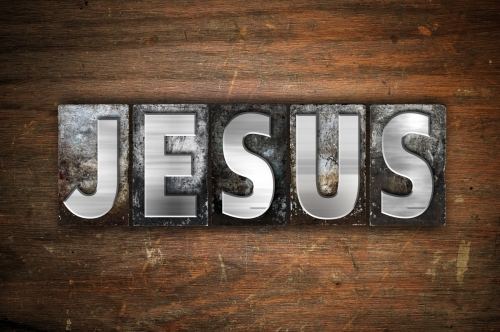
Prayer and the Holy Name of Jesus
Dear soul, rejoice. It is a joy to write again to you. I pray that our previous consideration of genuine orthodoxy in December's Olive Tree, has been helpful to you in some way. The ideas which I had raised for you in that treatment of orthodoxy of the heart will be something of a springboard to the thoughts which I will bring to you today.
We stand more in need now of prayer than ever before.
I am sure that this fact comes as no surprise to you. You only need to look around at the state of the world, or even spend a few minutes reading the news or browsing through social media sites on the internet to for the necessity of more and more prayer to be brought home with all the subtlety of a sledgehammer. You know this, dear soul.
But we must continually remind ourselves, as we look around us, of the fact that it is not merely "out there" and "in the world at large" that prayer is necessary. Rather, we must look deep within our own hearts. There we discover the first and most urgent place in need of prayer. Remember how often the fathers remind us of the words of our Lord, "For, lo, the kingdom of God is within you." (St. Luke 17:21).
Of course, the very "kingdom of Christ on earth, destined to be spread among all men and all nations," is none other than the One, Holy, Catholic and Apostolic Church, as Pope Pius XI declares in the encyclical Quas Primas (12).
But you know, dear soul, that being a member of the Church in truth entails the joyous delivery of all that we are and all that we have unto our Lord and King. This includes our thoughts, words, deeds, and the innermost being of our own hearts. So it is that Pope Pius XI likewise assures us, "He must reign in our hearts, which should spurn natural desires and love God above all things, and cleave to him alone." (Quas Primas, 33.)
We saw previously that in the Canon of the Holy Sacrifice of the Mass, those who are Orthodox (right-glorifying) are also those who hold the Catholic and Apostolic Faith. While, as an intellectual exercise, we might be able to make distinctions between all of these aspects of being a member of the Catholic Church, in actual practice they are inseparable from each other.
So now we come to the lesson upon which I would like you to reflect, and the course of action which we might take so that we might become truly living members of Christ's Church and cooperators with divine grace. This lesson is as simple, though it is not easy. It is among the essential parts of fighting the good fight and keeping the faith. Quite simply, the lesson is that we must cultivate unceasing prayer of the heart.
"Pray without ceasing." - I Thessalonians 5:17.
"Let nothing hinder thee from praying always." - Ecclesiasticus 18:22
"We ought always to pray." - St. Luke 18:1
The sacred scriptures attest to the importance of cultivating unceasing prayer.
We have seen that prayer is the glorification of God in right glory. We have seen the necessity of right glory dwelling within our hearts for it to be true. Finally we have seen that Christ must reign within our hearts.
With all of this knowledge before us, we might still be forgiven at this point if we are not entirely sure how to take the first steps in the work of cultivating unceasing prayer. We see the duty before us, but how are we to go about fulfilling it?
This is a good question, dear soul. It is also a question to which you will discover you already know the answer. Remember recently how we discovered and rejoiced in the essential importance of the Liturgy of the Church? Recall how we saw that by genuine participation in the Liturgy, by joining our own hearts, minds, bodies, voices to that of the Church that we were all the more genuinely "incorporated" within the Mystical Body?
Yes, our first step in unceasing prayer is to continue in this. For the Church never ceases to offer up her unending prayer unto Almighty God. So you, too, participate in this unceasing prayer each and every time you assist at Holy Mass, at the hours of the Divine Office, or receive the Sacraments. This corresponds to the first part of the Divine Kingship mentioned by Pope Pius XI in his encyclical.
But there is that second part of the Divine Kingship, as well. That Christ must reign within the hearts of all the faithful. Therefore we must cultivate an unceasing prayer of the heart, each of us.
Again, the Liturgy provides us the answers we need in our quest to do this.
Most recently, we have celebrated the great Feasts of the Circumcision of Our Lord, followed by the Feast of the Holy Name. It is precisely here, in the Holy Name of Jesus, that we will find the great key to unlocking unceasing prayer within our own hearts.
It is entirely fitting that at the beginning of the secular year we find two Feasts which are meant to give glory to the Name of the Lord. These Feasts likewise teach the children of the Church the importance of calling upon the Lord's name.
"Cantate Deo, psalmum dicite nomini ejus: iter facite ei qui ascendit super occasum: Dominus nomen illi."
"Sing ye to God, sing a psalm to his name: make a way for him who ascendeth upon the west: the Lord is his name." - Psalm 67/68:5.
A child will know instinctively that the surest way to bring the attention of a parent is to call out for them. As the adopted children of God, we must learn to do exactly the same thing. We find that in the name of the Lord there is the very power of the Lord Himself, for the Psalmist attests: The Lord is his name.
Thus it is that among the counsels of the ancient Fathers we find that having the Name of the Lord on our minds and on our lips is central to cultivating unceasing prayer in our hearts. We see this in the instruction of St. John Cassian, who recommends making a habit of repeating the prayer, "O God, come to my assistance; O Lord, make haste to help me!" (Psalm 69:2). Even to this day, we find the hours of the Divine Office commencing with these very words. To take these words to heart will make a very good start.
But let us also recall the words which we heard proclaimed during the Holy Gospel of the Feast of the Circumcision:
"At that time, when eight days were fulfilled for the circumcision of the Child, His name was called Jesus, the name given Him by the angel before He was conceived in the womb." - St. Luke 2:21.
Here we are reminded by the Church that among the great truths proclaimed by heaven is the very Name of our Lord Jesus Christ, being brought from the heavenly kingdom to earth by angelic ministration. Thus is it that we treasure the Lord's Name and keep it from profanation.
Here we would do well to remind ourselves of the enduring pious custom, now so often neglected, of always bowing one's head at the mention of the Name of our Lord. If you haven't taken this habit to yourself, dear soul, start today! Receive the pronunciation of the Holy Name with joy and tenderness.
Recall also the words of Saint Paul to the Philippians, some of which we heard read during the Holy Sacrifice on the Feast of the Holy Name:
"He humbled himself, becoming obedient unto death, even the death of the cross. Wherefore God also hath exalted him, and hath given him a name which is above every name: At the Name of Jesus every knee should bend of those in heaven, on earth, and under the earth, and every tongue should confess that the Lord Jesus Christ is in the glory of God the Father." - Philippians 2:9-11
Do you see here the great lesson we are given to impel us in our work of unceasing prayer of the heart?
Recall the necessity of giving right glory to God. Here is precisely that! For "every tongue should confess that the Lord Jesus Christ is in the glory of God the Father." And, as our Lord proclaims, "But the things which proceed out of the mouth, come forth from the heart." (St. Matthew 15:18).
If we are to confess right glory, that the Lord Jesus Christ is in the glory of God the Father; and if it is at the Name of Jesus that every tongue will confess that right glory; if those things which proceed out of the mouth come forth from the heart, then it is all the more necessary that the Name of Jesus must be within our heart. And there, dear soul, is the final and great key to unceasing prayer: the prayer that is the Name of the Lord.
If you do not have a spiritual father who can begin to instruct you in the work of unceasing prayer, then follow for now the example of St. John Cassian. Say those initial words: "O God, come to my assistance; O Lord, make haste to help me!" when you rise, as you work, when you rest. Do not concern yourself now with how many repetitions you make; that can very easily lead you into vain repetition. Rather, make a beginning in training your heart to pray by praying with your mouth, and then your mind. A good spiritual father will then be able to help you advance. But lay the good foundation now!
Having laid that foundation, one may begin to understand the words of Saint Augustine when he recounted, "It is said that the brothers in Egypt have certain prayers which they recite often, but they are very brief, and are, so to speak, darted forth rapidly like arrows, so that the alert attention, which is necessary in prayer, does not fade and grow heavy through long-drawn-out periods." (Letter to Phoba.)
Recall always that the very Name of the Lord can and should be one's prayer.
There are many ancient customs regarding prayer of the Name of the Lord which we may explore in depth soon, dear soul. All will presuppose the presence and direction of a good spiritual father trained in cultivating prayer, a father sent by the Church. Recall the words of Saint Paul:
"For whosoever shall call upon the name of the Lord shall be saved. How then shall they call on him, in whom they have not believed? Or how shall they believe him, of whom they have not heard? And how shall they hear, without a preacher? And how can they preach, unless they be sent?" - Romans 10:13-15.
This is the manner in which the face of the earth can be renewed, through the creation of a new heart within you, calling constantly on the Name of the Lord. Call on Him in whom you do believe, having heard from the voice of the Church, speaking through the ministry of her authentic ministers whom she has sent, even to the present day. Let the Holy Name dwell in your heart!
"The heart itself is but a small vessel, yet dragons are there, and there are also lions; there are poisonous beasts and all the treasures of evil. But there too is God, the angels, the life and the kingdom, the light and the apostles, the heavenly cities and the treasuries of grace - all things are there." - St. Macarius the Great.


Pray for Frater Francis Dominic as he teaches Catechism through the web site. We are also working on a plan to bring classes to the people in their homes around the United States. There is a link to our Catechism lessons. Some of the Lessons may need to be "tweaked". Catechism Lessons
We are looking to buy land for a Church and a House of Prayer. Please pray with us in finding the right place. and if you feel led, to donate money for this project you can donate by Paypal, or make check or money orders out to Vatican in Exile.
While looking for Land we are also pricing quality buildings for Hermitages and a work building for making vestments. Pray about this as well and take a look at the ones we have our eyes on!





Don't forget to continue praying for our trip to Europe the Summer of 2017. We have one visit to Hungary for sure, a visit to Ireland, and a possibility in England. Here are the countries we will be available for: Poland, Austria, Hungary, Belgium, Great Britain, Bulgaria, Croatia, Czech Republic, Denmark, Finland, France, Germany, Greece, Hungary, Ireland, Italy, Luxembourg, Macedonia, Montenegro-Serbia.
Every month we are very close with our budget. It takes money to be available to people in other areas as well as having supplies like rosaries, bibles, pamphlets, Catechisms etc for sharing with Non Catholics. At this time to stay comfortably out of the red we need 300.00 a month. Please read the message Giving to Gods Work and then decide how you can give. Everyone should give something. It does not have to be much.


To Donate online go to:

To Donate by Mail:
Our address is
Vatican in Exile
829 NE Chester
Topeka, Kansas 66616
Make Checks payable to:
Vatican in Exile





 Follow
Follow


